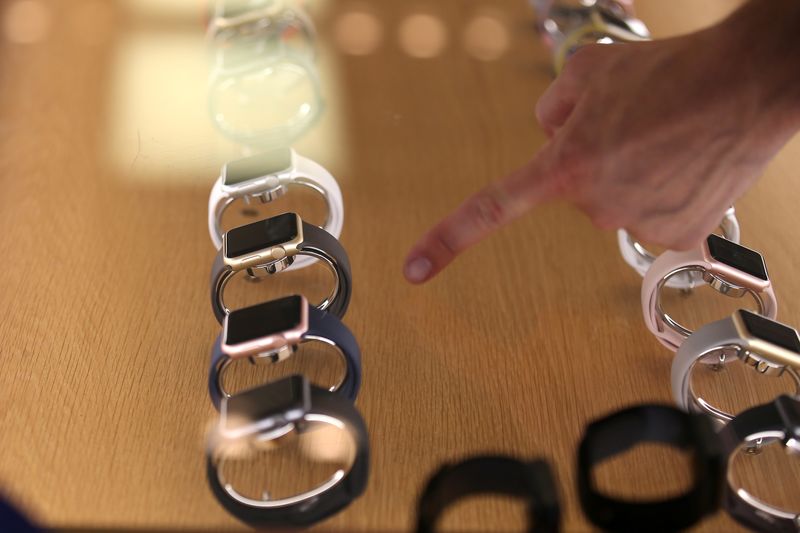© Reuters. FILE PHOTO: An Apple logo is pictured in an Apple store in Paris, France September 17, 2021. REUTERS/Gonzalo Fuentes/File Photo
PARIS (Reuters) -France’s antitrust watchdog said on Tuesday it had issued a statement of objection against Apple (NASDAQ:), citing concerns the U.S. technology company could have breached regulations linked to the use of iPhone user data for advertising purposes.
The watchdog is concerned Apple might “abuse its dominant position by implementing discriminatory, non-objective and non-transparent conditions for the use of user data for advertising purposes”, it said in a statement.
The statement triggers an antitrust procedure during which the company will be able to express its point of view, the watchdog said.
Apple denied the allegation. The mechanism “gives users more control by requiring all apps to ask permission before tracking them”, the company said in an e-mailed statement, adding it will “continue to engage constructively” with the French regulator.
Four French online advertising industry groups filed an antitrust complaint in 2020 against Apple over changes the company made to privacy features when it started to ask iPhone owners whether they were ready to allow apps to gather data used to define and send targeted ads, called App Tracking Transparency (ATT).
The feature lead to revenue declines for publishers, industry lobby groups said.
The four associations – IAB France, MMAF, SRI and UDECAM – said the changes brought by Apple did not meet European Union privacy rules, citing the fact that while the opt-in mechanism applied for third-party developers, Apple’s own apps did not include it.
“Apple’s apps do not show an ATT prompt because they do not track, meaning they do not link user or device data with user or device data collected from other companies’ apps, websites, or offline properties for targeted advertising or advertising measurement purposes, nor do they share user or device data with data brokers,” Apple said.
“Apple holds its advertising business to a higher standard of privacy than it requires of any other developer,” the company added.
Read the full article here












